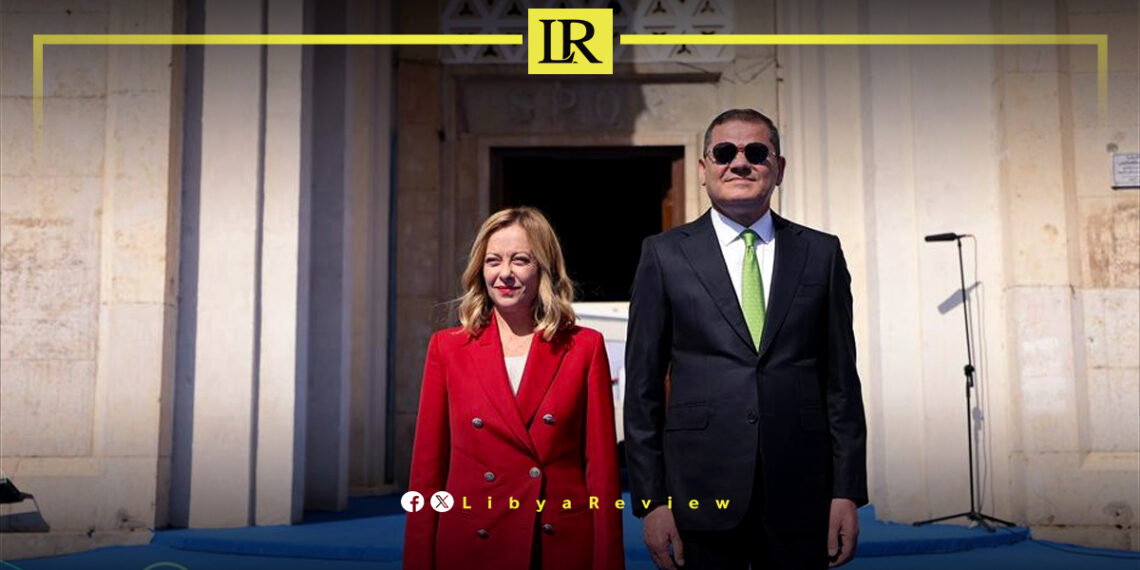Libya’s Tripoli-based television channels, newspapers, radio stations and news agencies from both international and local outlets were all prevented from accessing the Libyan-Italian Economy Forum on Tuesday.
According to the media office of outgoing Government of National Unity of Abdulhamid Dbaiba, the forum was held in capital Tripoli in its 30th edition.
No further details were available on the forum as no media outlet was allowed to attend it.
However, the media office said the Italian prime minister Georgia Meloni attended with Dbaiba the opening ceremony.
A number of journalists who spoke to Libya Review on conditions of anonymity, said that the outgoing government refused to invite all media to the forum with “no reasons.”
“We contacted the media people of the government to ask about the possibility of attending the forum for media coverage, but they said no information received on allowing you to attend,” said a journalist of a local TV channel.
The journalist added that it was not the first time the government blocked our access to such events.
A media content expert said that such actions “call into question the intentions of the Dbaiba government and his minister of communications Walid Al-Lafi to respect freedom of the press.”
“Al-Lafi monopolizes all media coverage of government events in all ministries, thinking that other media outlets are competing with him,” said the expert “This is a grave mistake.”
A foreign affairs ministry source told Libya Review by phone that there were “direct instructions from the government media people to prevent all journalists from attending the forum.”
“We have no idea why , we just obey the rules,” the source said.
The Libyan media outlets did not publish independent reports on the forum due to the ban on journalists, and they were limited to only reporting the opening speech given by Dbaiba via his media office.
Journalists from all media outlets in Tripoli are subjected to restrictions on their freedom to practice their work and their access to information is denied, according to international and local rights groups.
Some journalists say that even if they carry an authorized accreditation, the armed groups would prevent them from working freely.
The U.N. mission to Libya has repeatedly called on the authorities in the country to reduce this harassment, but to no avail.
Earlier this month, a number of journalists were harassed by guards of the Presidential Council head, Mohamed al-Menfi, during the ceremony of receiving the president of Mauritania and a delegation from the African Union.
The journalists then withdrew without covering the ceremony at the Crown-prince palace in Tripoli, the main protocol headquarters to Menfi’s visitors.
“This is unacceptable at all. When the government [ of Dbaiba ] wants a wide coverage to an event, they start sending us invitations but now they sidelined us,” said a journalist who works for an international media outlet.
“I visited a couple of weeks ago the Tripoli book fair and I saw the security people chasing all the media questioning them,” said the journalist.
“As you can see now, we speak with you but we can not mention our names for fear of revenge. We do not enjoy any kind of press freedom,” the journalist added.


